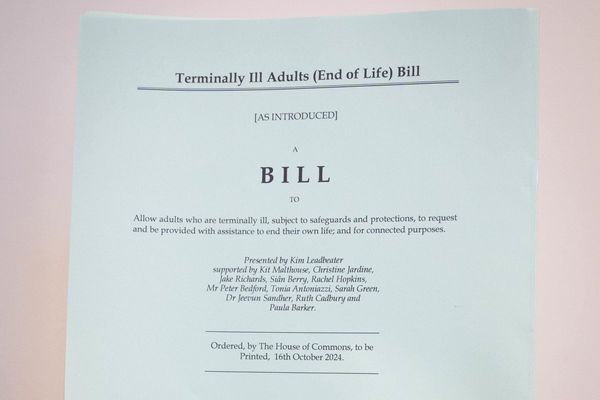
Every year in the budget papers, under “Statement 2” of Budget Paper no. 1, is an outlook for the international economy, including Treasury’s assessment of key risks globally. Last year, Treasury observed “the international outlook remains highly uncertain, with the balance of risks firmly tilted to the downside”.
That could apply doubly so in tomorrow’s 2024-25 budget, to be released on the same day as US President Joe Biden announces a new round of punitive tariffs against China. They will include a quadrupling of tariffs on electric vehicles — the Chinese product that Americans and Europeans are terrified of — as well as the maintenance of existing tariffs the Biden administration retained from the Trump administration, plus new tariffs on solar power equipment and medical equipment.
Despite the endemic polarisation and division that plagues US politics, tariffs targeting China are a subject of rare bipartisanship. But Donald Trump promises to go much, much further than either he did during his first presidential term or than Biden has. He has promised that, if elected later this year, he will impose a 10% tariff on all imports to the US, no matter where they’re from, and a 60% tariff on every Chinese import.
This will unleash a global trade war involving China, the European Union and the United States — three of our four top trading partners. The EU responded to Trump’s tariffs on steel and aluminium in 2018 with a host of tariffs on US products; China responded to a 25% tariff on many of its products by slapping its own 25% tariff on $50 billion of US goods.
Tariffs punish consumers in the country that imposes them by pushing down real income, and punish workers in industries that use imported equipment while killing jobs and research funding. But that doesn’t deter politicians from trade wars — not even politicians in a dictatorship like China, where they don’t have to ever worry about what voters might think.
Australia’s response to burgeoning protectionism around the world has been to join in the fun. We haven’t yet started imposing tariffs on “strategic” industries — instead, we’ve gone for the softer form of protectionism where the cost is borne by taxpayers, not consumers and workers, with the Albanese government’s “Future Made In Australia” silliness, the bill for which is already in the billions.
Instead of trying to encourage larger economies to avoid protectionism and maintain a working free trade system from which Australia draws significant advantages, we’re signing up for a new protectionist era in which industries and products that are politically favoured are showered with taxpayer cash. We’re thus doing our little bit to enhance those downside risks in the international outlook.
While Labor’s embrace of this interventionism is portrayed as a reversal of the Hawke-Keating era of market-based reforms, that picture obscures the fact that the low point of protectionism in Australia is now long in the past and we’ve been steadily becoming more protectionist since then.
If the Abbott government rightly encouraged gouging, exploitive multinational carmakers to leave in 2014, since then we’ve had a bipartisan anti-dumping policy that inflicted billions of dollars of extra costs on consumers and industries such as construction, we’ve developed a bipartisan defence manufacturing policy that has committed to spending tens of billions of dollars to locally build weapons systems that could be purchased far more cheaply and quickly offshore, and we’ve had a bipartisan willingness to support a growing list of “critical”, “strategic” or “sovereign” industries and products.
It’s a fair bet that, if elected, the Coalition might axe the “Future Made In Australia” slogan but retain the handouts to business in the name of keeping a “sovereign capability”.
Perhaps the budget will have more to offer on a coming trade war than nationalist rhetoric about making things locally and bringing products tangentially connected to Australia “back home”. But the “outlook for the international economy” should be required reading tomorrow night.







